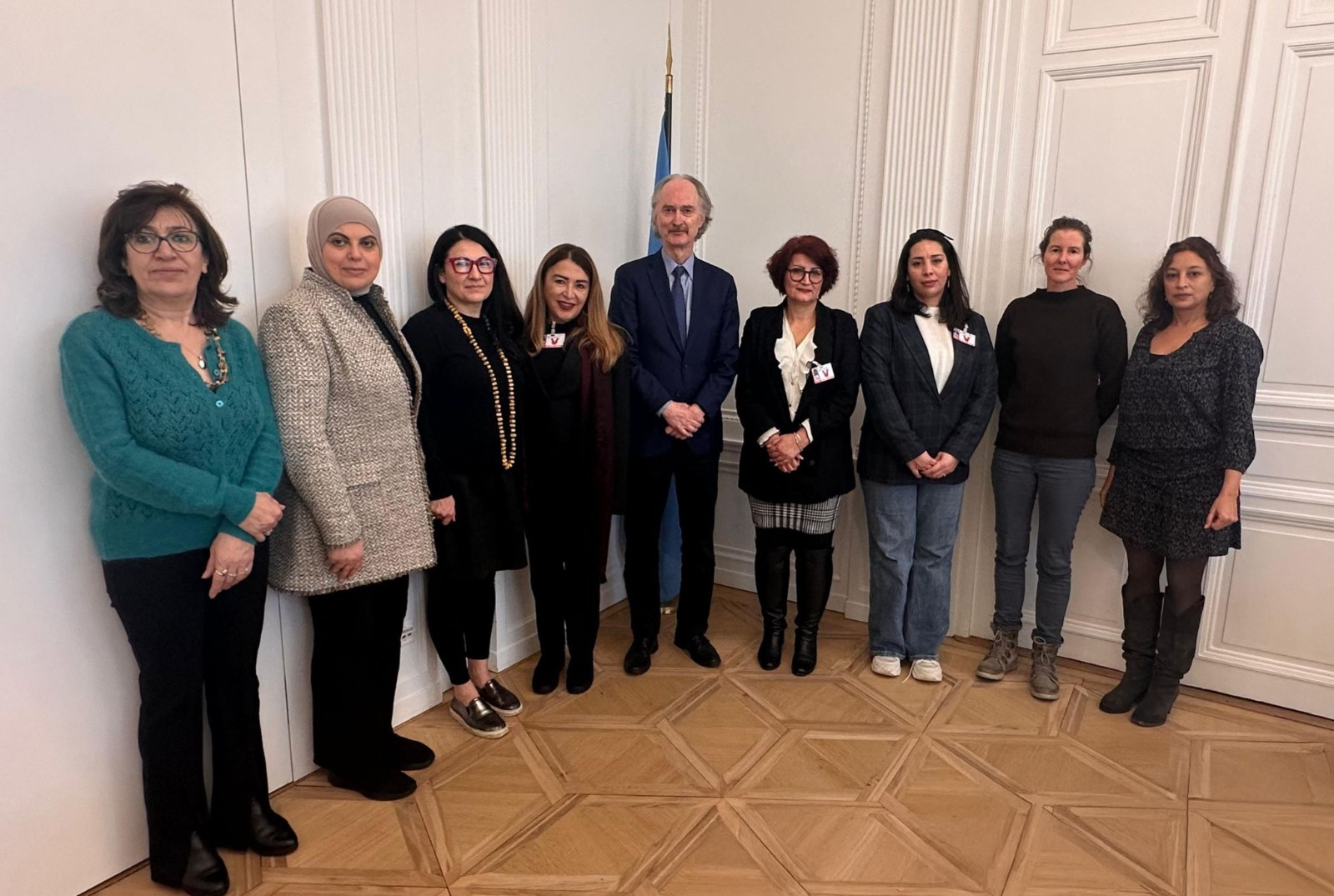The Syrian Women’s Political Movement’s Visit to Geneva to Discuss Recent Developments in Syria
- updated: December 6, 2024
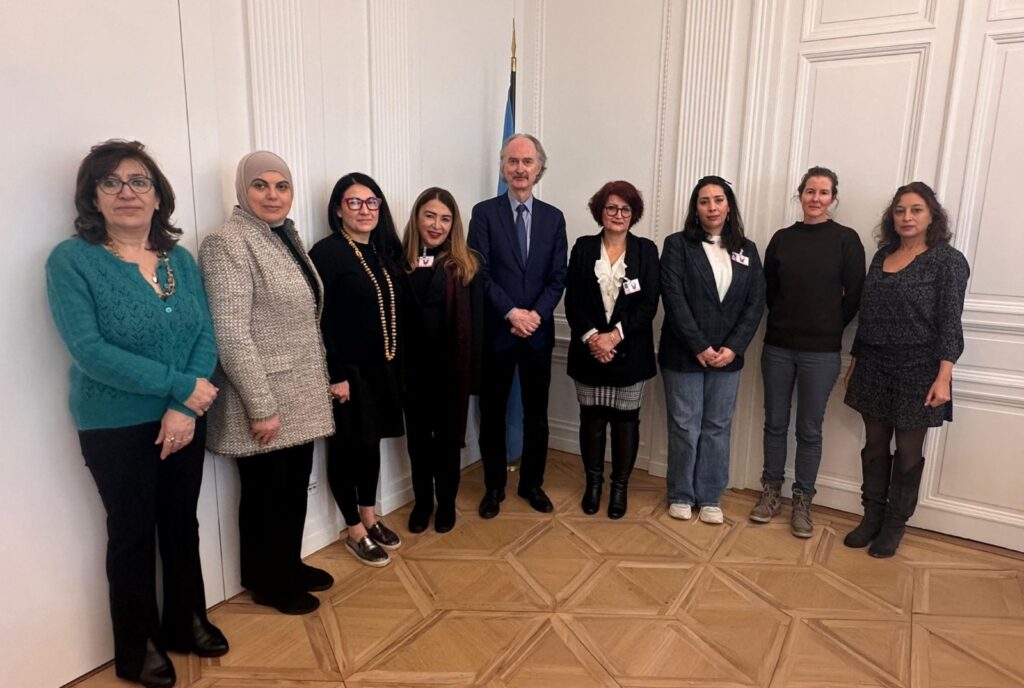
The Syrian Women’s Political Movement (SWPM) conducted a political tour to Geneva, Switzerland, on Monday and Tuesday, December 2 and 3, 2024, to discuss the latest updates and developments in Syria with various political figures and international decision-makers. The movement was represented during the visit by members of its General Secretariat, Mariam Jalabi and Wejdan Nassif; Alise Mofrej member of the Political Committee; Roula Roukbi member of the Foreign Relations Committee; Hanan Ahmad member of the Young Women Politicians Forum; and Executive Director Alma Salem.
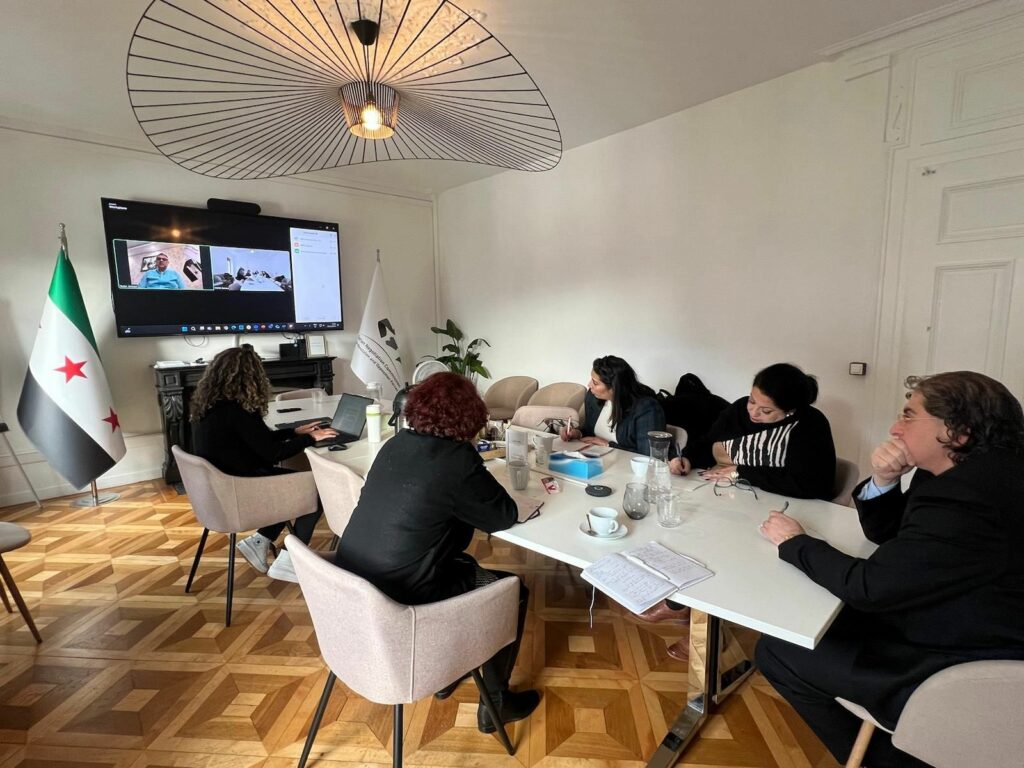
During the visit, the delegation met with Geir Pedersen, the UN Special Envoy for Syria. They also held a virtual meeting with Dr. Badr Jamous, President of the Syrian Negotiation Commission.
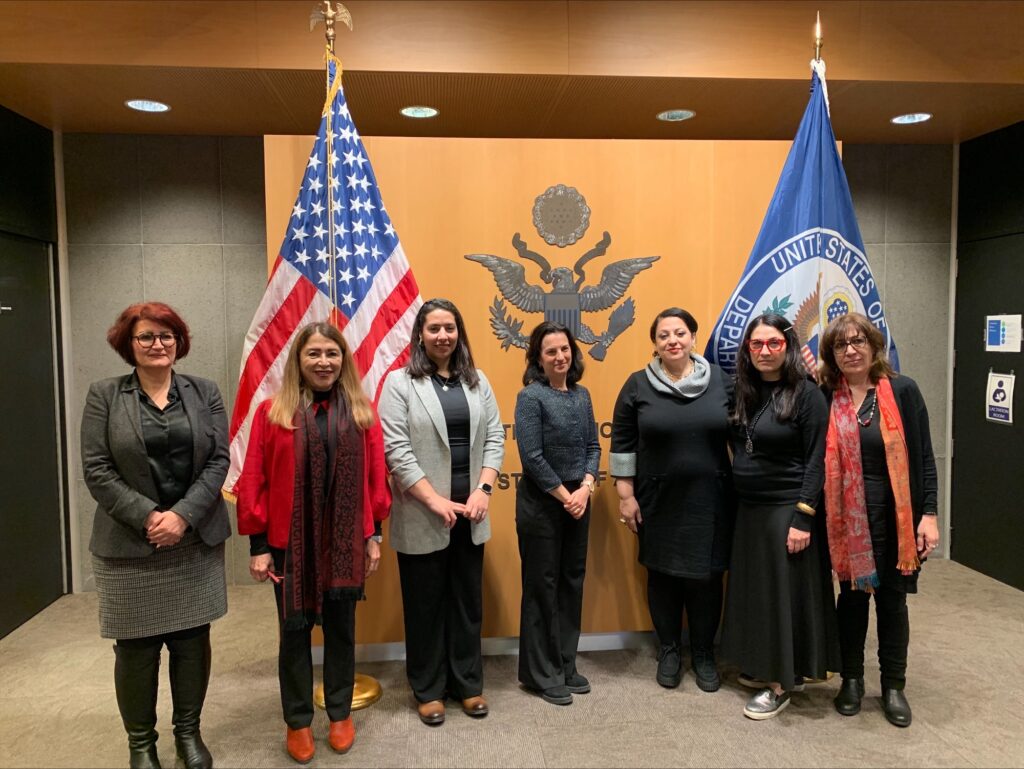
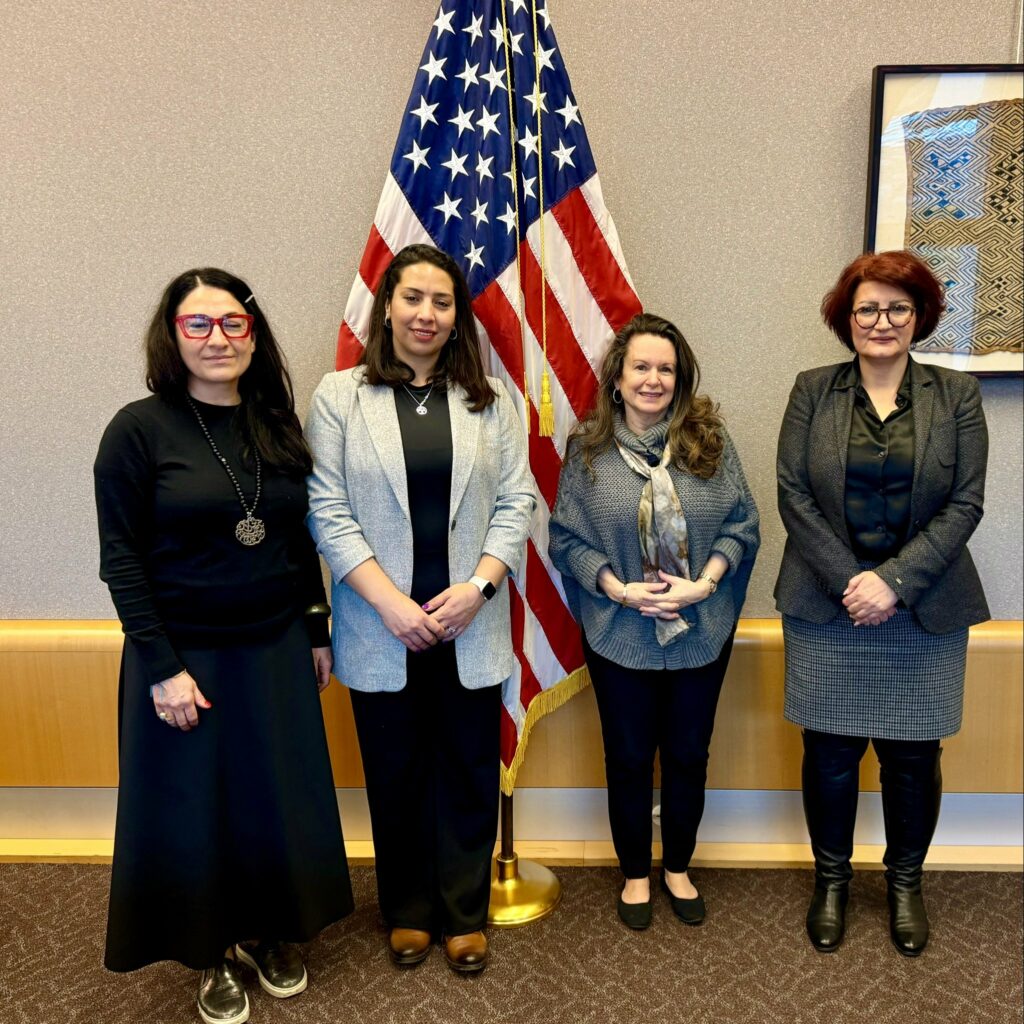
Other key meetings included discussions with Sheba Crocker, the U.S. Ambassador to the United Nations in Geneva, and Michele Taylor, U.S. Ambassador to the Human Rights Council.
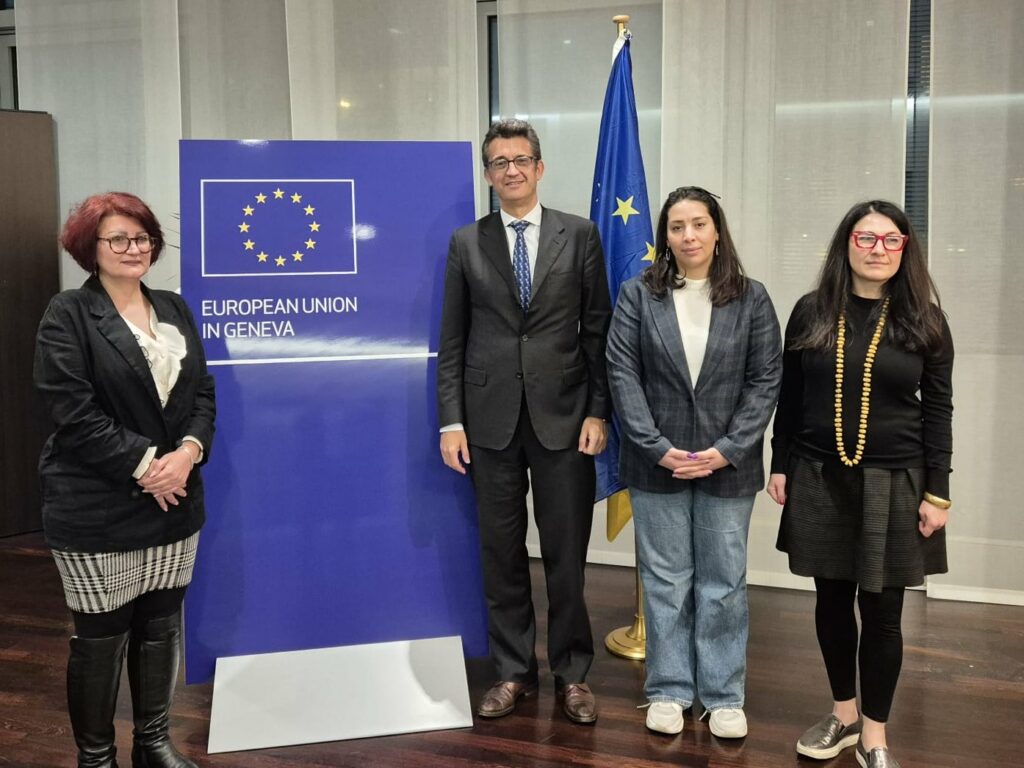
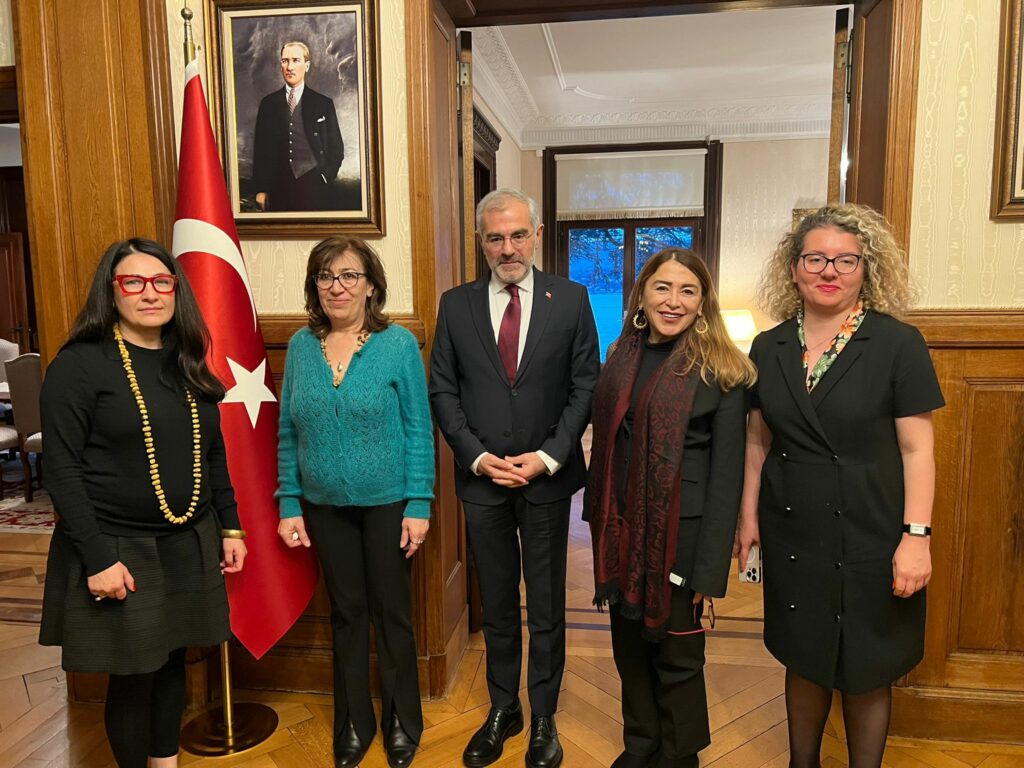
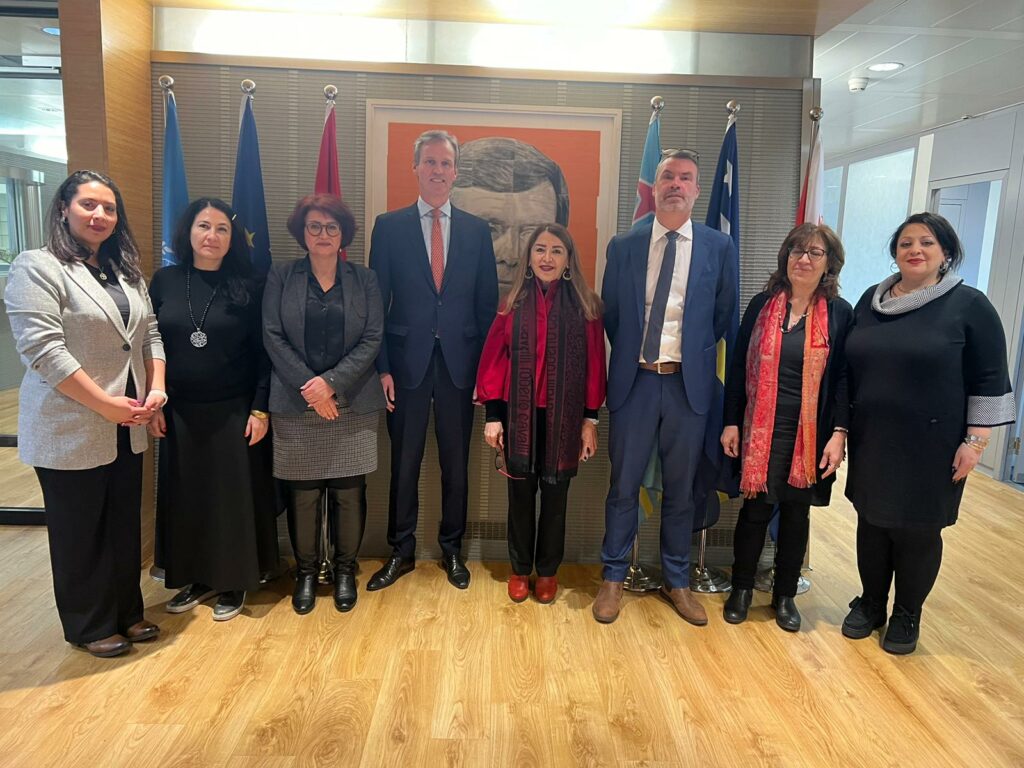
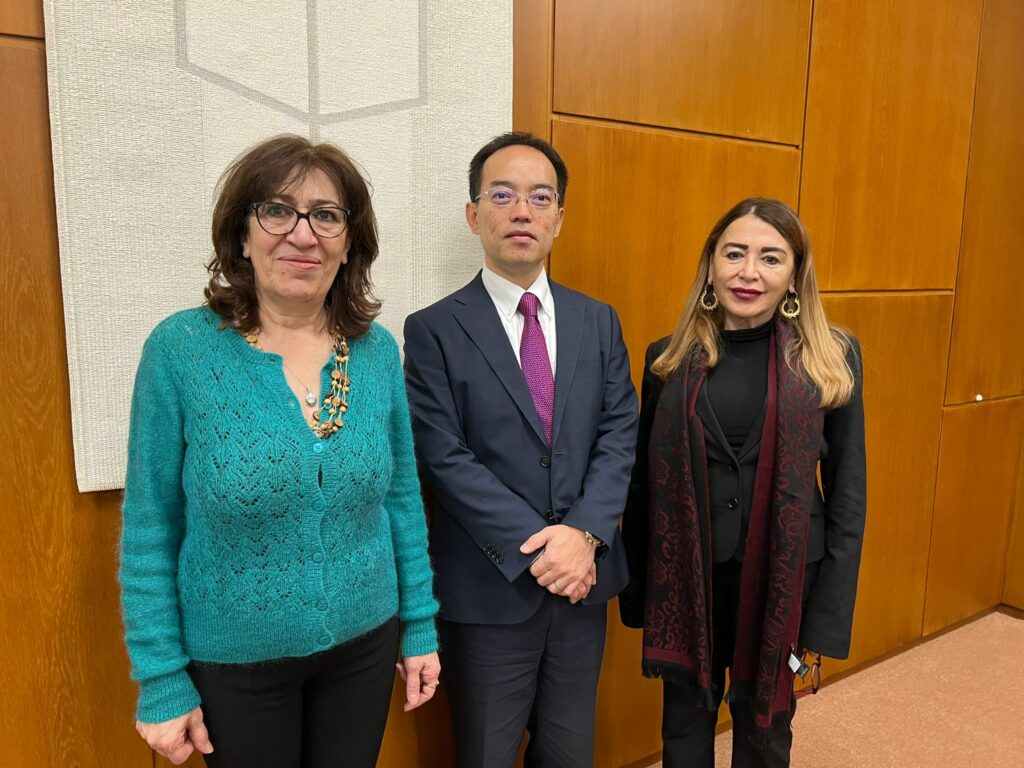
Additionally, the delegation met with H.E. Mr. Michele CERVONE D’URSO, EU Ambassador to the UN in Geneva; Burak Akçapar, Turkish Ambassador to the UN in Geneva; Paul Bekkers, Permanent Representative of the Netherlands to the UN Office; and Ishii Yoshizane, Deputy Permanent Representative of Japan.
Key Political Messages Emphasized by the Delegation:
- Preserving the Revolution’s Values: The delegation stressed the importance of maintaining the values of freedom, democracy, and justice that the Syrian people revolted for in 2011. These principles should guide the path toward a free, democratic, and unified Syria, free of all forms of oppression.
- Political Stalemate: They identified the absence of a political solution as the root cause of Syria’s current issues, holding the Syrian regime primarily responsible for the political deadlock. The delegation called on the international community and the UN to push for a comprehensive political process beyond the Constitutional Committee, leading to a sustainable political solution and peace through the full implementation of UN Security Council Resolution 2254 and related resolutions, including Resolution 2118 and the Geneva Communique.
- Unity and Sovereignty: Emphasis was placed on preserving Syria’s territorial integrity and opposing plans for division or demographic changes.
- Protection of Civilians: The delegation highlighted the need to protect civilians across all Syrian territories, who bear the greatest burden of the conflict. They called for an end to violations by all de facto authorities and accountability for war crimes by all parties to achieve justice.
- Safe and Voluntary Return of Refugees: The return of Syrian refugees must be linked to a political solution that ensures a safe, neutral environment for voluntary and dignified repatriation to their original homes.
- Economic and Social Challenges: They stressed the importance of addressing the deteriorating economic and living conditions affecting most Syrians and highlighted the role of civil society in providing support amid recent developments.
- Support for Released Detainees: The delegation urged protection for detainees recently released from Aleppo prison and demanded information about the fate of remaining detainees and forcibly disappeared persons.
- Syrian Refugees in Lebanon: They drew attention to the situation of Syrian refugees in Lebanon, particularly after the recent ceasefire, noting that they cannot return to their previous homes in Lebanon or Syria due to fear of arrest.
- Youth Participation: The delegation underscored the plight of Syrian youth amid the current circumstances and the need to involve them in future political processes.
Roula Roukbi, a member of the SWPM, stated: “Despite mixed feelings, we cannot but share in the joy of those returning to their homes and cities. The release of detainees marks the beginning of the journey toward a free and democratic Syria.”
